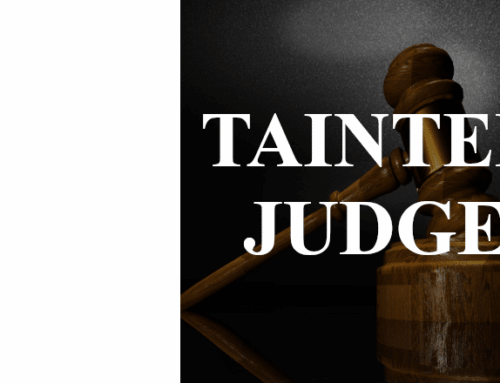Bill Donohue comments on opposition to a new federal court nominee:
The atheists at the Freedom From Religion Foundation (FFRF) are opposing another Trump judicial nominee. Their target this time is Allison Jones Rushing, nominated for the U.S. Fourth Circuit Court of Appeals based in Richmond, Virginia.
Rushing’s offense is twofold: a law review article on Establishment Clause cases that she co-wrote as a Duke University law student in 2005; and the person she wrote it with, a senior counsel at Alliance Defense Fund, now Alliance Defending Freedom. So let’s compare FFRF’s allegations with the facts.
FFRF says: Alliance Defending Freedom “was designated an ‘anti-LGBT hate group’ by the Southern Poverty Law Center.”
Fact: The ideologically-driven Southern Poverty Law Center (SPLC) is hardly a credible source. It labels as “hate groups” virtually any conservative-minded group that doesn’t embrace its left-wing agenda. It recently had to give a $3.375 million settlement, plus an apology, to former Islamic radical Maajid Nawaz for falsely labeling him an “anti-Muslim extremist.” SPLC also had to apologize to Ben Carson for placing the current HUD secretary, an African American, on its “extremist watch list” along with neo-Nazis and white supremacists.
FFRF says: The article Rushing co-authored, “Nothing to Stand On: ‘Offended Observers’ and the Ten Commandments,” dealing with court challenges to displays of the Ten Commandments on public grounds, evinced “extreme views on religious freedom and the importance of state-church separation.”
Fact: The article actually called for treating Establishment Clause cases the same as “all other areas of the law,” noting that the plaintiffs in the Ten Commandment cases were not held to the same standing requirements, under Article III of the Constitution, that ordinarily must be met for a case to be heard in federal court.
FFRF says: Rushing argued that “‘offended observers’ should never be allowed a day in court” to challenge alleged government violations of the Establishment Clause; and that this “leaves citizens totally unable to hold government accountable for even clear Establishment Clause violations.”
Fact: Rushing clearly explained that “To have standing under Article III, a plaintiff must have suffered a ‘concrete and particularized’ injury”—not simply have been “offended” by a religious display. If they have suffered such injury, they would of course have standing to sue.
FFRF says: “Rushing has demonstrated hostility toward secular Americans.”
Fact: Rushing warned not against all secular Americans, but against “village secularists” who “charge into court with the ACLU and challenge governmental acknowledgements of religion, no matter how passive or benign.” She cited Judge Frank Easterbrook of the U.S. Seventh Circuit, who noted that courts are required to distinguish between “injured and ideological plaintiffs.”
FFRF says: “Rushing reverse-engineers results that privilege religion and violate the Constitution,” as when she warns against allowing the opinions of Establishment Clause plaintiffs to “override those of the rest of the population.”
Fact: Rushing’s point is that, absent “concrete injury,” the plaintiff’s recourse should be through the political process. This holds for religious believers as well. For example, she explained, parents having religious objections to the content of their child’s school curriculum have no standing to sue based solely on exposure to offensive ideas. “A parent’s recourse is to the political process of the school board, just as the political process is the proper place for offended observers of the Ten Commandments to take their complaints.” This doesn’t “privilege” religion, it subjects religious as well as secular plaintiffs to the same standing requirements.
FFRF says: “Rushing fails to grasp the difference between speech and religion,” and that government has no “free speech right to take a stance on religion.”
Fact: The FFRF argument that the government has no “free speech right to take a stance on religion” is plain dumb. The U.S. Supreme Court opens every session with a prayer, “God save the United States and this honorable court,” and “In God We Trust” is our national motto. What are they if not the exercise of free speech by the government in behalf of religion?
When it comes to issues of religious freedom, the facts are seldom as FFRF describes them. That is the case again in their attacks on Allison Jones Rushing.







